
COMING 2022
SIXTY SECONDS
A FILM BY LARA SHEA
In a single minute, Tyler Turner’s life changed during a routine skydive. His life is cleaved into two segments: life prior to and after sixty seconds that he’ll never get back. This award-winning short documentary follows Turner after his accident as he pursues a nuanced physical and nuanced emotional recovery.
Approximately Sixty Seconds of Tyler’s memory has been lost forever. To this day, he has no recollection of the moments just prior to impact with the ground. No one knows what really happened.

“Sixty Seconds paints a beautiful paradox of Turner’s emotions and his new adaptive life. There is no sugar coating, but there is plenty of virtue.”
- Katherine Erwin, 51 Degrees Magazine
This is the story of Tyler Turner’s journey
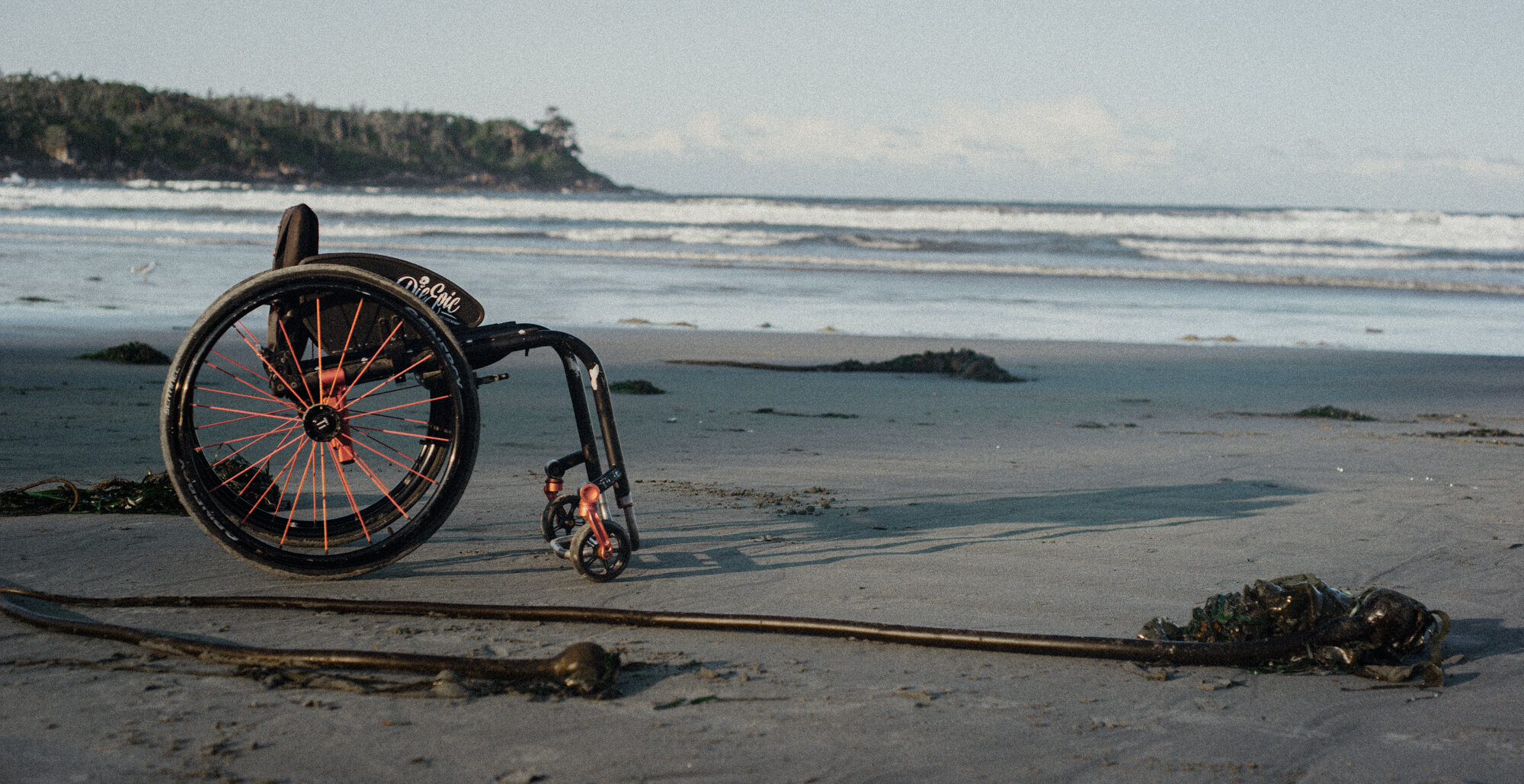
Introduction
WHEN WE THINK OF STORIES ABOUT RECOVERY FROM TRAUMATIC INJURY, WE ARE EASILY ABLE TO RECALL IMAGES THAT ARE CENTRED IN THE PHYSICAL JOURNEY. IT IS THESE NARRATIVES ARE MORE SIMPLE TO TELL, AS THEY ARE BASED ON TANGIBLE THINGS: BONES, LIGAMENTS AND MUSCLE. THE STORY THAT IS OFTEN OVERLOOKED, IS THAT OF THE EMOTIONAL JOURNEY, WITH ALL ITS SUBTLETY, NUANCE, AND COMPLEXITY. THE PHYSICAL JOURNEY TENDS TO BE LINEAR, WHEREAS THE EMOTIONAL JOURNEY - THAT OF CHANGING THE WAY WE PROCESS OUR THOUGHTS, FEELINGS AND EMOTIONS - TENDS TO BE FAR MORE DIFFICULT TO UNDERSTAND AND TO NAVIGATE.
IT IS IMPOSSIBLE TO PREPARE ONESELF FOR SUCH AN EXPERIENCE, FOR IT IS FORCED UPON YOU. RECOVERY DEPENDS ON HOW ONE DEALS WITH THOSE HARDSHIPS - AND THE ABILITY TO DRAW ON RESILIENCY FROM WITHIN.

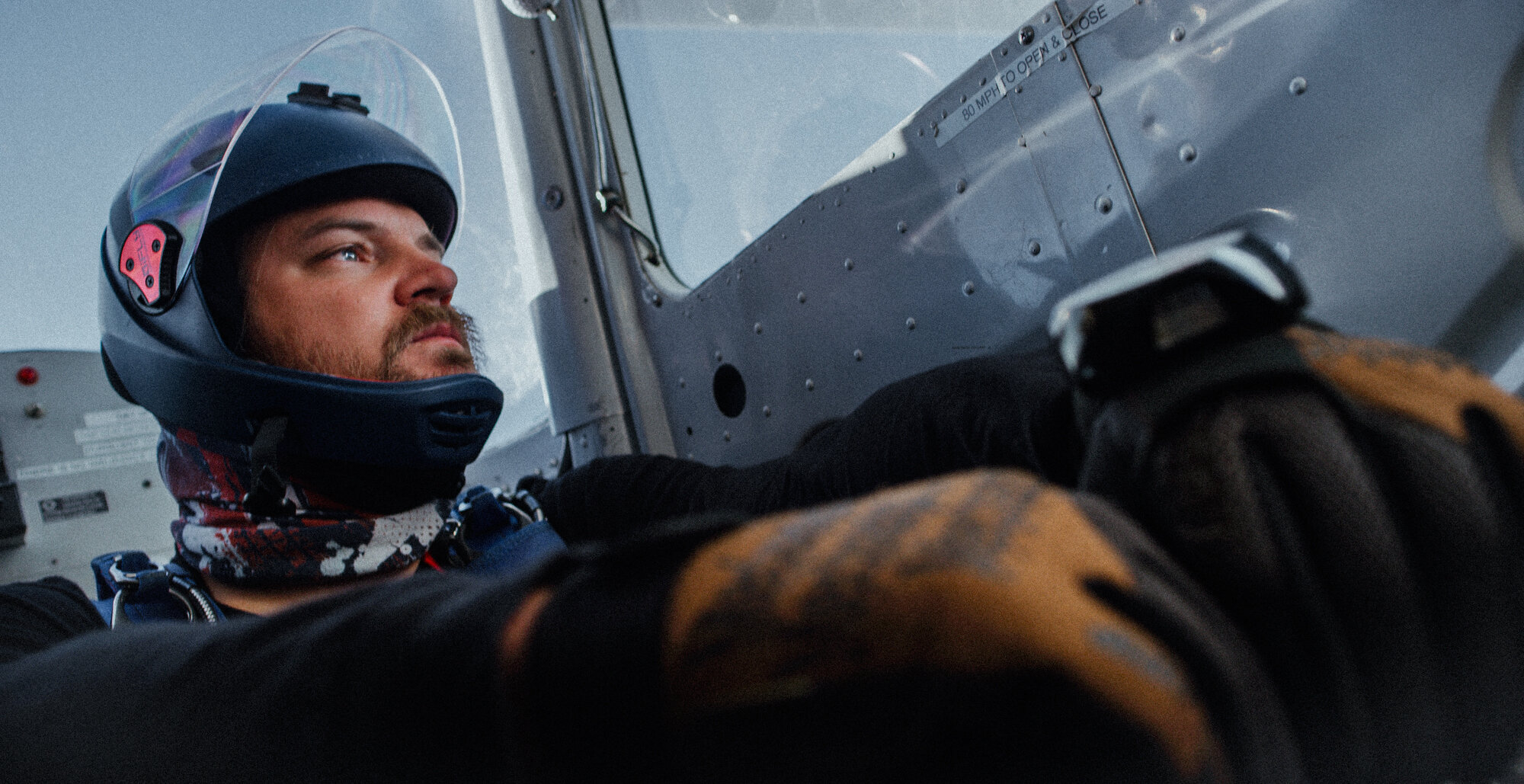

On September 4th, 2017 Tyler’s world transformed during a routine skydive
When Tyler woke up from a coma, he had suffered severe trauma to his lower legs, pelvis, back, head and internal organs. The surgeon tried to reconstruct one of his lower legs, as the other had been destroyed on impact with the ground. Initially, he managed to harness his sense of optimism and to be hopeful about the future. Unbeknownst to him at the time, intense chronic and phantom pain from the amputation and various other injuries would plague him for the foreseeable future. Mundane tasks became monumental tasks as he came to terms with profound changes in his previously athletic and able-body.
A wheelchair would become his only viable way to get around.
The Immensity of the change he was experiencing began to feel overwhelming and there seemed to be no end in sight to his suffering. Tyler spiralled into a deep depression. His past fell out of reach and his carefree and effortless way of life - centred around a constant state of flow - was lost.
About a year after his accident, the surgeon came to the conclusion that his remaining lower leg would have to be amputated, making him a bilateral amputee.
Although it was certainly another life-changing surgery, the second amputation eliminated a significant amount of chronic pain.
Tyler’s mental well-being started to shift for the better. He became more mobile and his psychologist helped him to integrate the tools that were needed in order to cope. A community of friends, family, and healthcare professionals provided significant love and support.
The doors began to open.

IT IS IMPOSSIBLE TO PREPARE ONeSELF FOR SUCH AN EXPERIENCE, FOR IT IS FORCED UPON YOU.
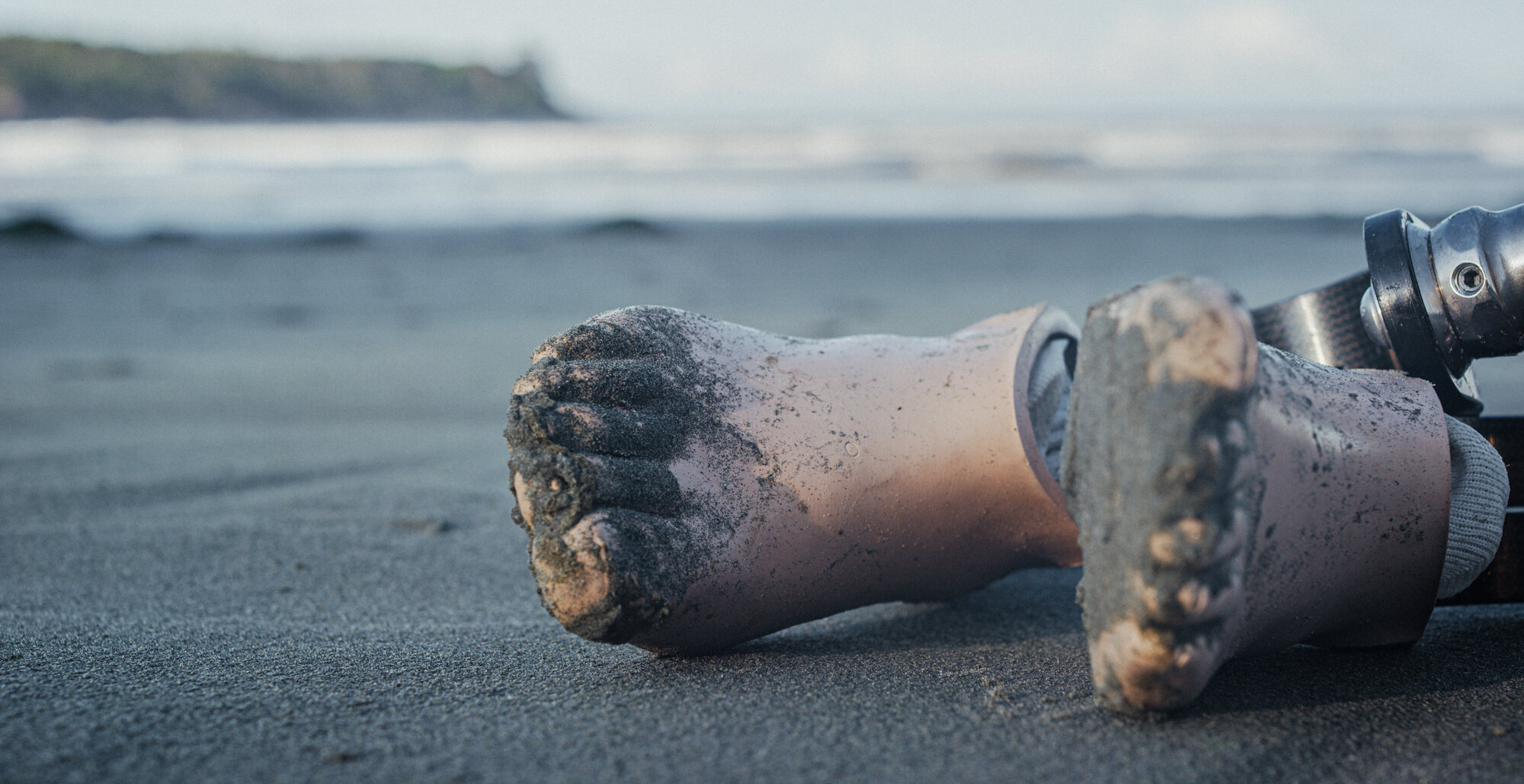
Sixty Seconds
Sixty Seconds is a 19-minute film that documents Tyler Turner's journey of recovery after a life-altering accident. In a moment in time, Tyler’s reality changed forever. This film documents the journey he takes with his body, mind and his perception of self. Drug dependency, depression, chronic pain, sleep deprivation, the pitfalls of life through social media, and his connection to sports that were such a defining force in his life are themes that are explored. Tyler’s life is cleaved into two segments: life prior to and after 60 seconds that he’ll never get back.
The film follows Tyler through the inevitable ebb and flow of his emotional, mental and physical wellbeing - and the ongoing balancing act between achieving personal independence and getting the support he needs from a huge professional and personal support network.
Anyone who comes into contact with Tyler gets an almost tangible sense of his innate strength of character and passion for life. And a sense of appreciation for a man who continues to find what is needed to move forward each day in an uncertain journey to recovery.

AN unlikely love story in the midst of trauma
FEATURING KAYLEEN VANDERREE AND TYLER TURNER
KAYLEEN VANDERREE
is a commercial diver, freelance writer, published author, marketing specialist, and adventurer. You can usually find her on her sailboat, planning her next trip.
VISIT HER WEBSITE
TYLER TURNER
is a Snowboard Cross World Champion (2021), competitive surfer, avid skydiver and public speaker. He is currently training for the 2022 Olympics and is often found on his sailboat. Also, he is a bi-lateral amputee.

KAYLEEN MET TYLER PRIOR TO HIS SKYDIVING ACCIDENT. THE TWO STARTED DATING IN THE MIDST OF HIS POST ACCIDENT TRAUMA. THEIR FIRST OFFICIAL DATE WAS IN THE HOSPITAL.

Publications, Media and Mentions
“Sixty Seconds” - Carve Magazine
“That’s the narrative Hollywood would sell you, but the real story, a much more raw and darker - truth, is told in Sixty Seconds the award winning debut film by director Lara Shea.”- 51 Degrees North Magazine
“Shea also explained that she wanted to create a film that acknowledged emotional depth within individuals in sport communities and reflect on how their sense of self identity can become so closely linked to their sport that if ever the sport is taken away, they’re at a loss for methods to cope with the struggles they’re facing.” - Revelstoke Mountaineer
“Sixty Seconds isn’t about that Turner or the adrenaline sports he pursued in the decade prior to his accident; it’s about the human body and mind and how we deal with the hole left when the things we love most are suddenly and violently ripped away.” Mountain Life Magazine

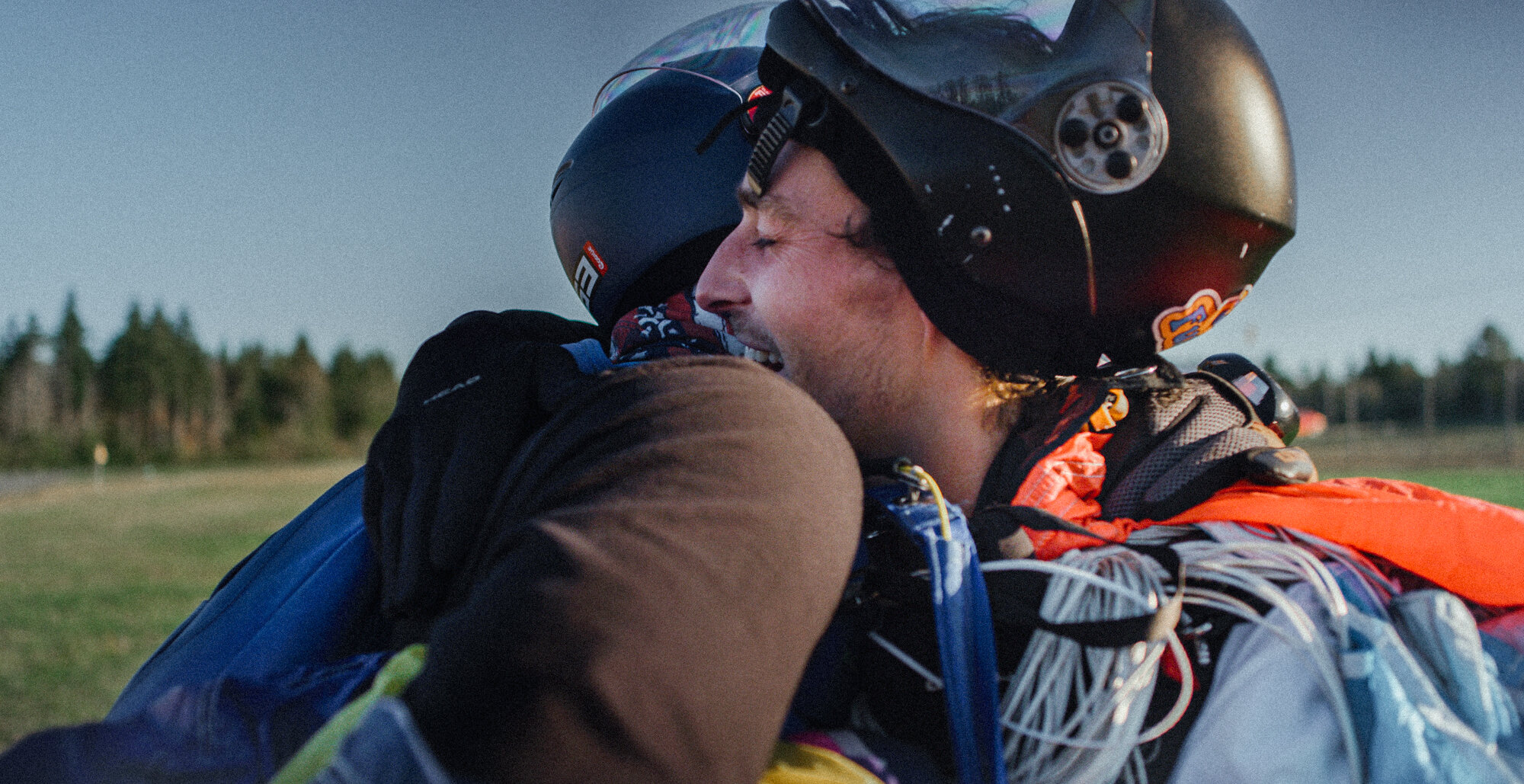
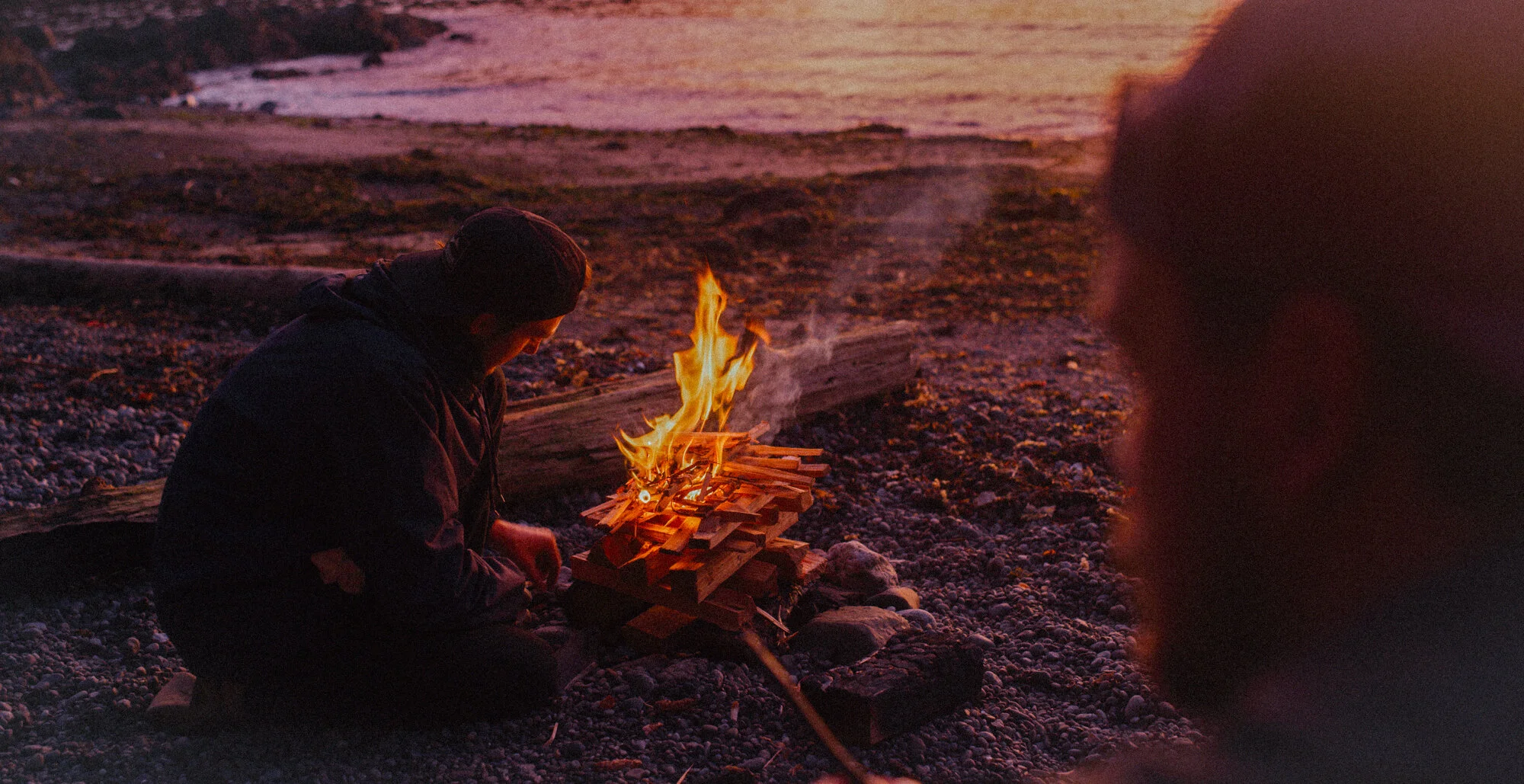
Meet the Team
-

Lara Shea
DIRECTOR / PRODUCER
This is Lara’s directorial debut. She is an accomplished photographer and artist who is currently transitioning into documentary work and narrative film making. Her previous work includes working on commercials and promotional films. -

Ken Bibby
EXECUTIVE PRODUCER
For more than 20 years, Ken has worked as a helicopter ski guide, avalanche educator and fly fishing guide. He also works as a project manager and has played various roles in the production of social and adventure documentary films. -

Jason Mannings
DIRECTOR OF PHOTOGRAPHY
Jason won an Emmy Award for ‘Outstanding Camera Work’ for his documentary cinematography. His clients include: Toyota, Red Bull, Matchstick Productions, Sturge Film, Sweetgrass Productions, Patagonia, Anthill Films, Low Indigo, Invisible Friends, Shambhala Music Festival, Bass Coast Music Festival, Nelson Kootenay Lake Tourism, Haglöfs, EpicTV, Arc’teryx, Specialized Bikes, TomTom Bandit, Philips Electronics, Olympic Experience, Engelberg-Titlis Tourism, Buckman Co, Holding Space Films, Bullfrog Sunscreen.



DIRECTOR STATEMENT
Lara Shea
Tyler’s accident hit very close to home for me. We were friends, co-workers and shared a common mountain community. In the early stages of his recovery, I witnessed him unravel. His identity began to slip away. It was hard to watch a friend suffer each day, with very little positive outlook for the future; there was simply too much uncertainty, too many unknowns. As time passed we began to connect in a subtly different way. During his recovery I was also trying to recover from my own trauma, albeit a very different version. It was still pain. Our ebb and flows seem to almost mimic one-another. I started to feel a little less alone in my own troubling discomfort. In this moment, the universality of his words had potency.
I wanted to create a film that acknowledges emotional depth within individuals in sport communities. I am often surrounded by those who utilize high intensity sport to deal with their mental conflicts, which effectively allow a reprieve from their emotional hardships until those efforts are dismantled by something like an injury. Their sense of self identity being tightly wrapped up in their own coping mechanisms, such as adrenaline based sport, can promote a drastic downward spiral when it’s taken away. Consequently, they are forced into a place of change and growth to both rediscover and redefine their identity.
When I approached Tyler about the film, he did not hesitate. He also wanted to create a film that was unabashedly real, leaving nothing out.
My main intentions moving into this filming were to create a gift for a friend who could reflect on it, see his progress from a different perspective. The subject matter was inherently delicate and we endeavoured to be respectful of the very real roller coaster ride that he was on. As explored potential themes, I was surprised to unveil what was to become a foundational love story along with a brutally honest attempt at reconnection with his sense of identity. We also explored a complicated relationship with social media and the importance of building trust through patience with your subject matter as a film maker.
Tyler’s story feels timely and apropos. Durning a period of extended isolation, individuals are now faced with emerging from the chrysalis of a new reality. Also, this film speaks to young adults - an audience that statistically struggles with anxiety and depression now more than ever.
I hope that my audience connects with both the darkness and the light in the film - for they are inexorably linked in our shared human experience. I have so much gratitude for the cast and crew - and everyone else who helped along the way.
Lara Shea, 2021.
BEHIND THE SCENES
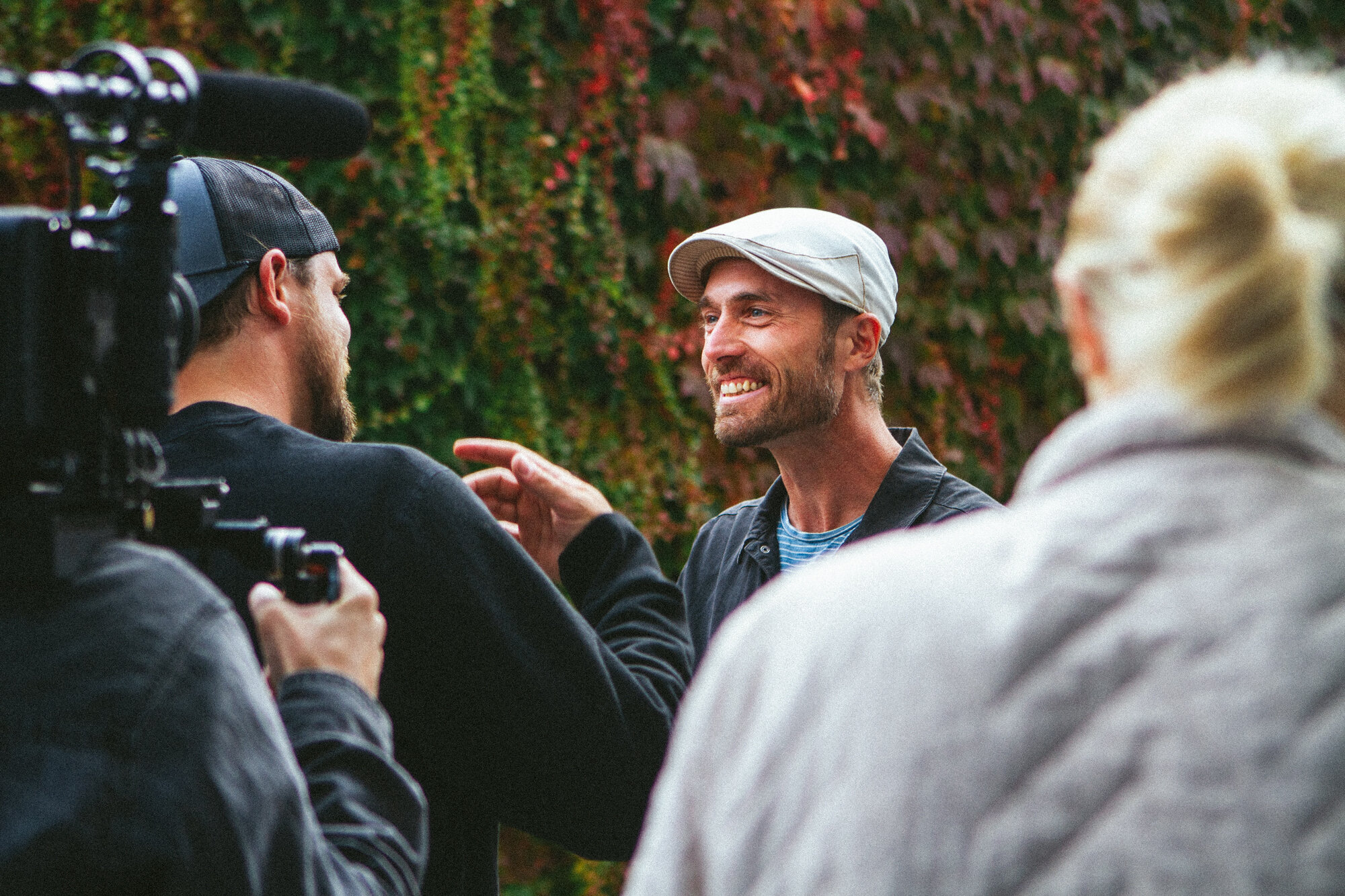
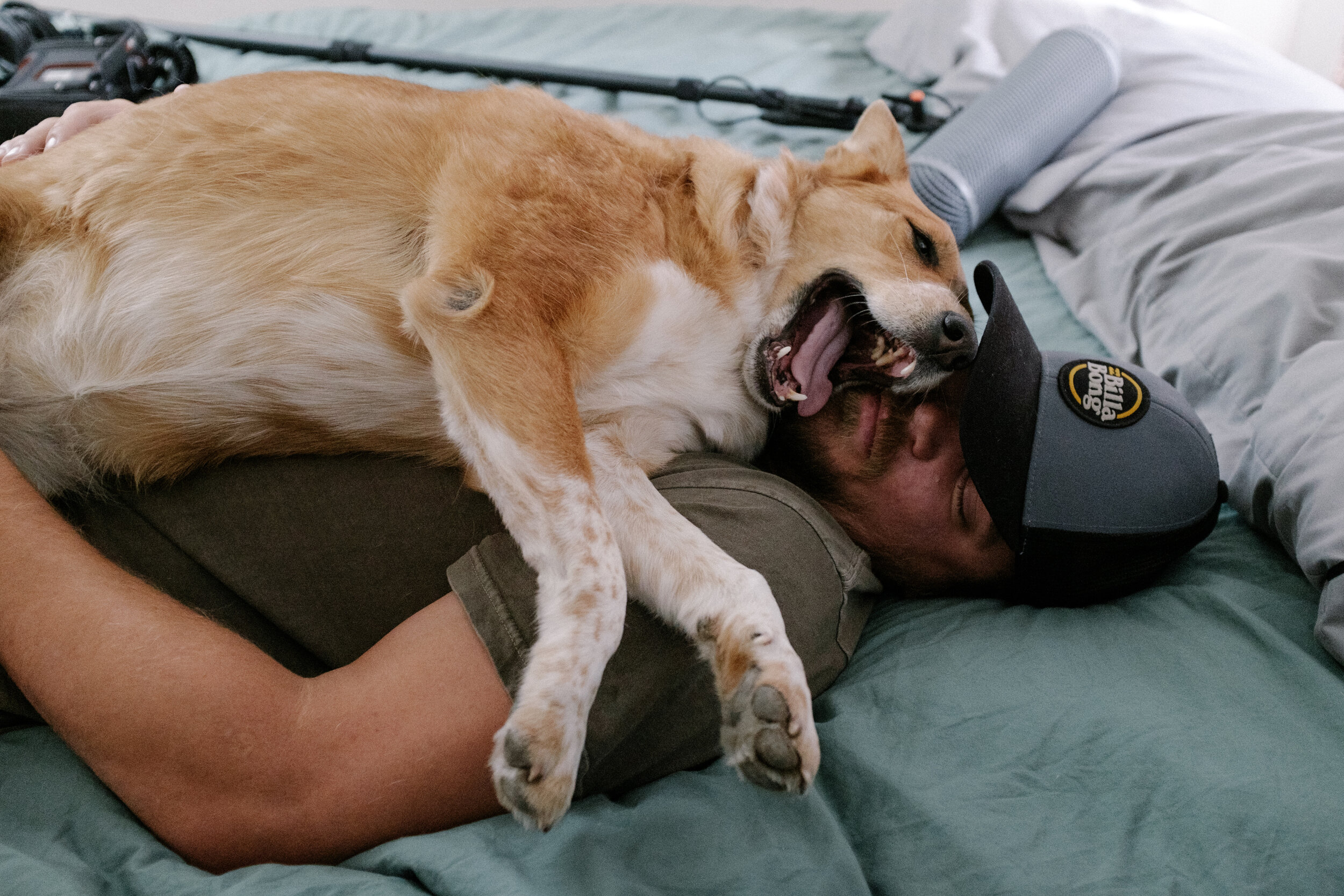
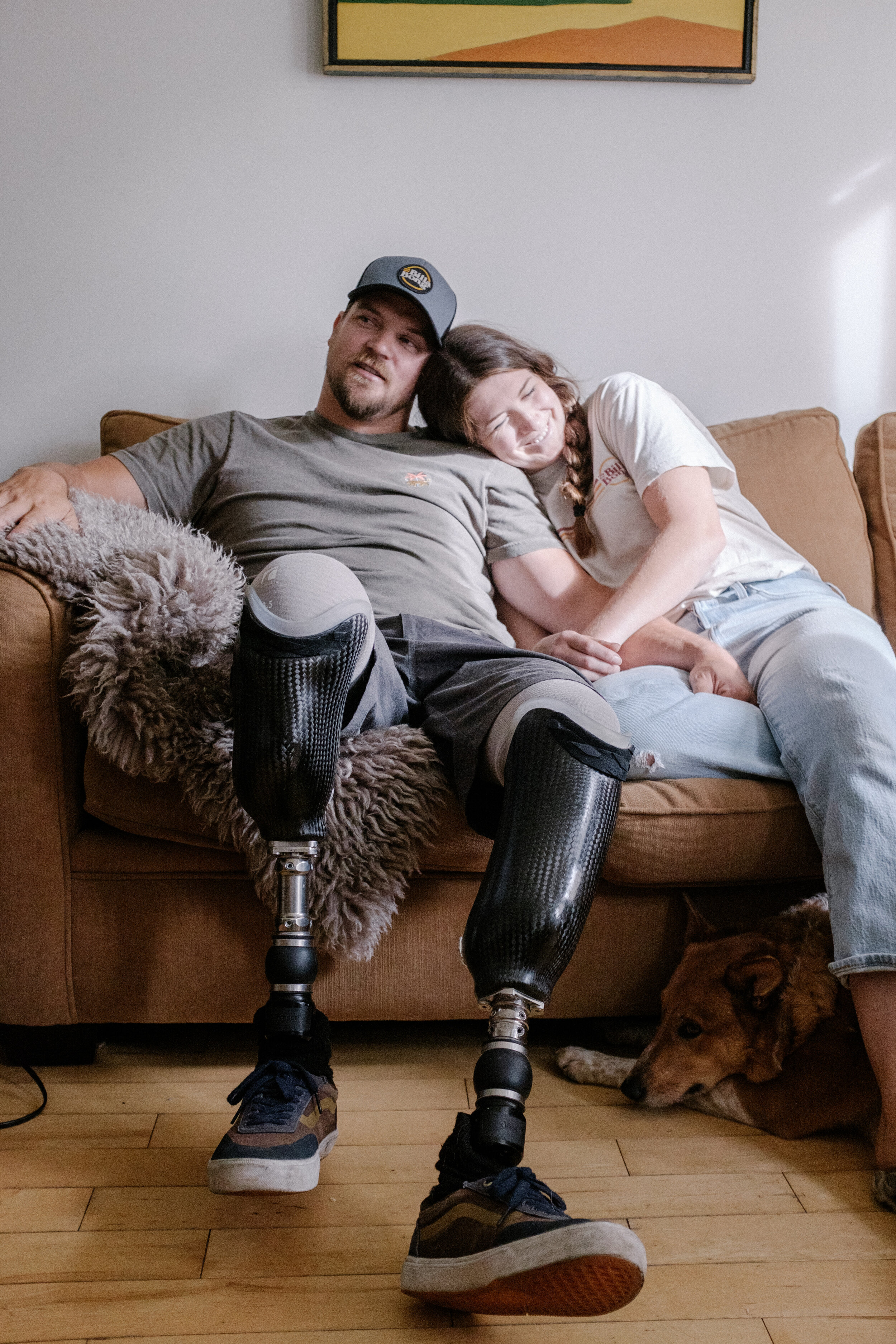
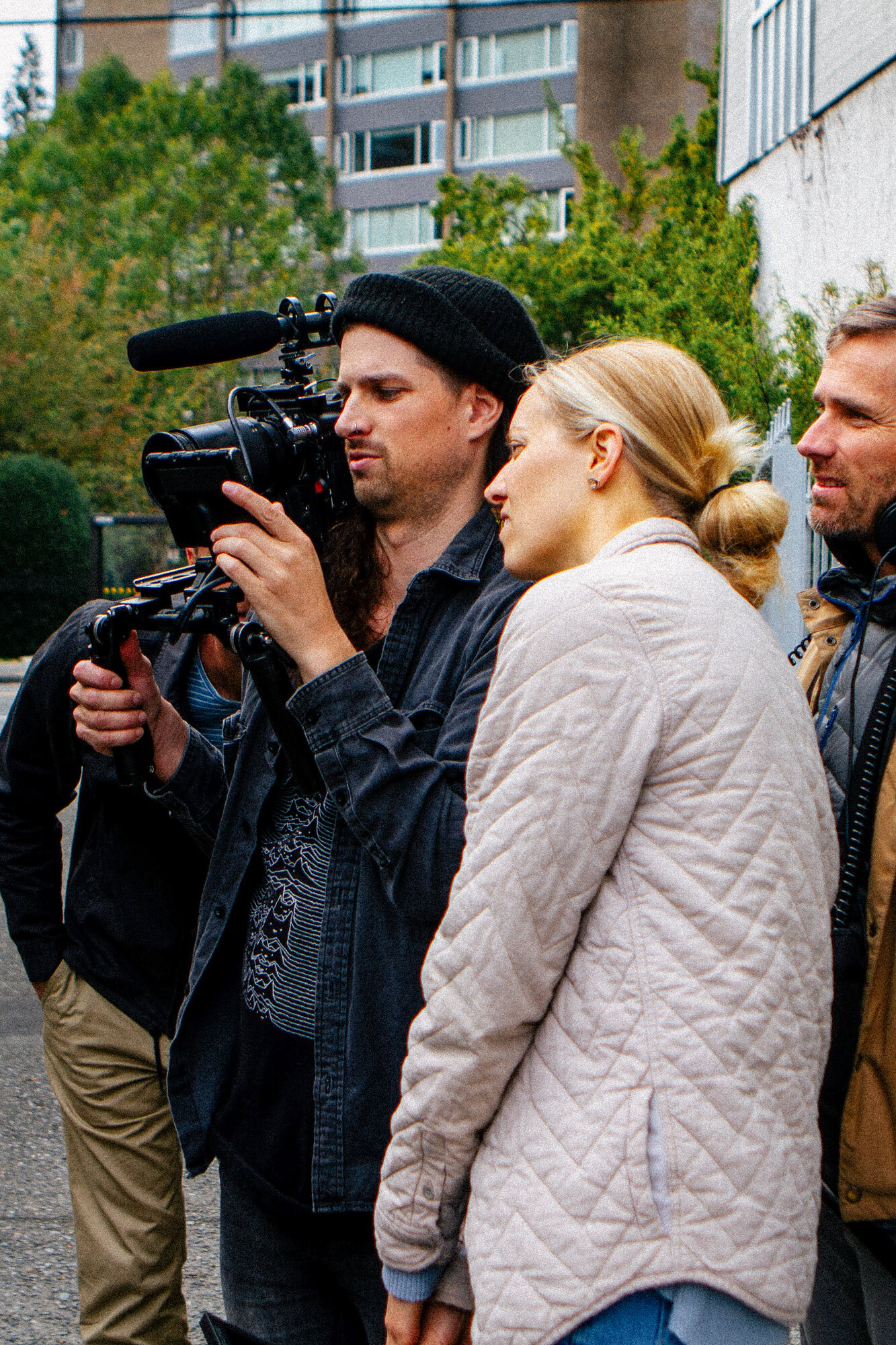


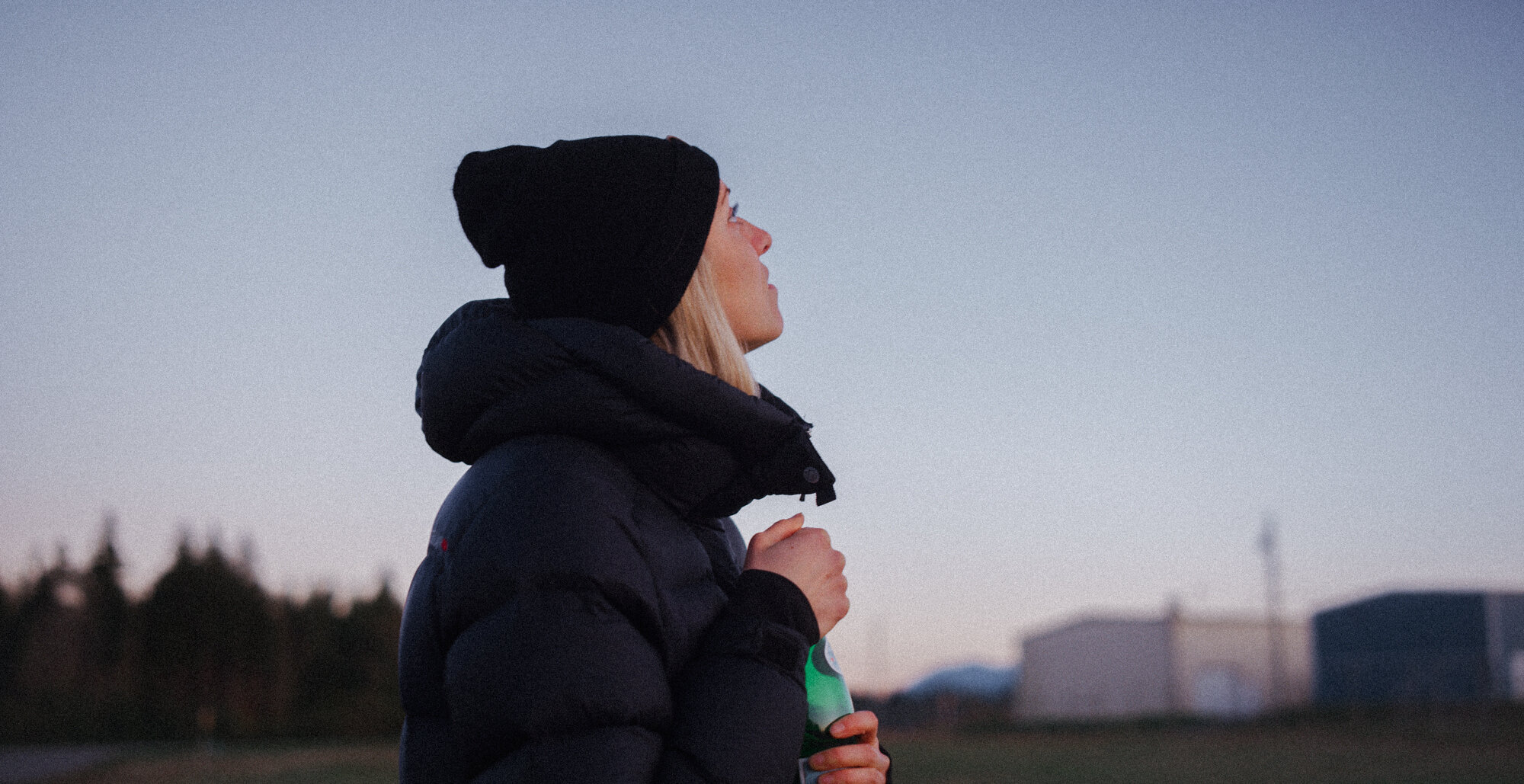
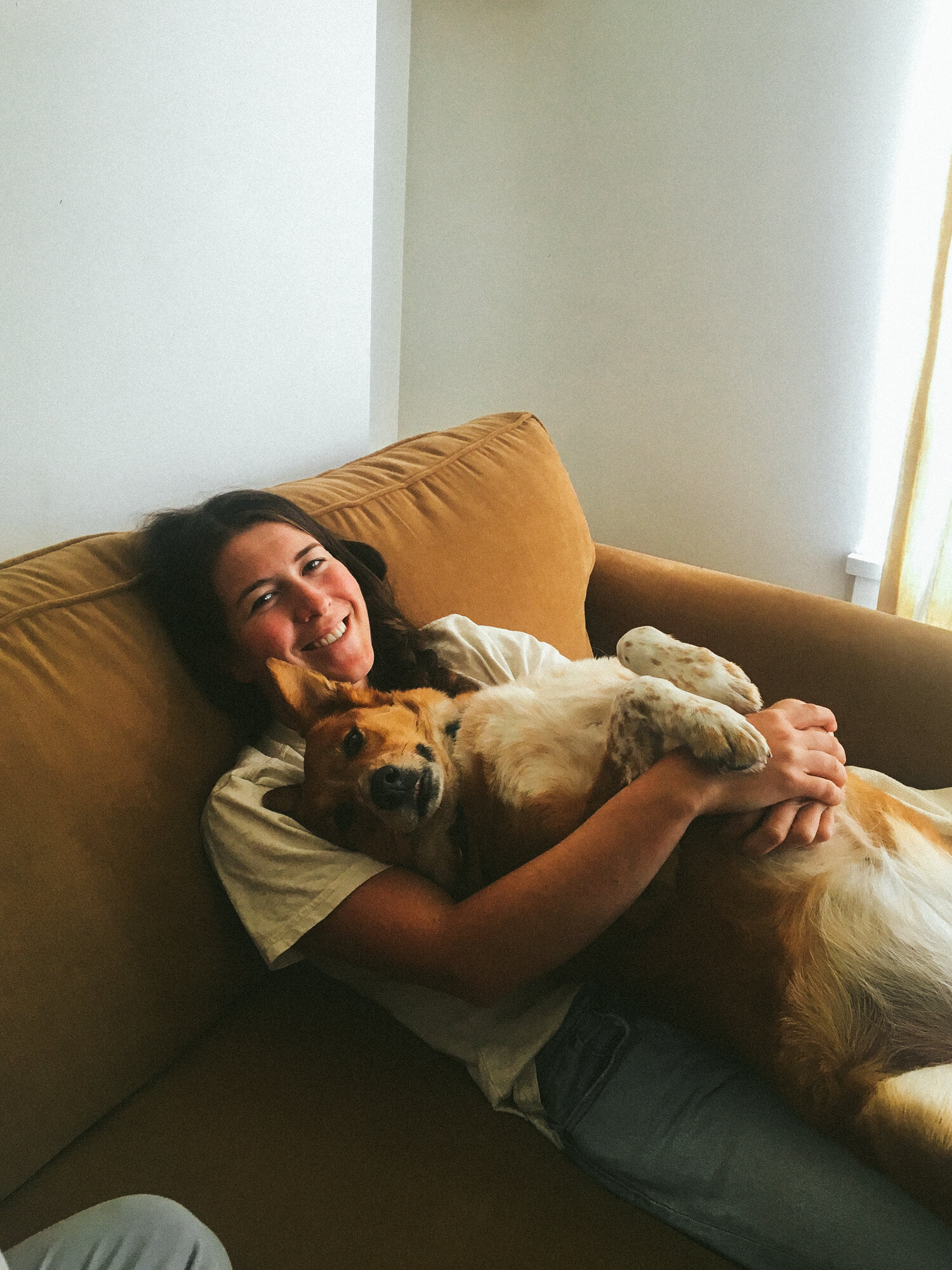
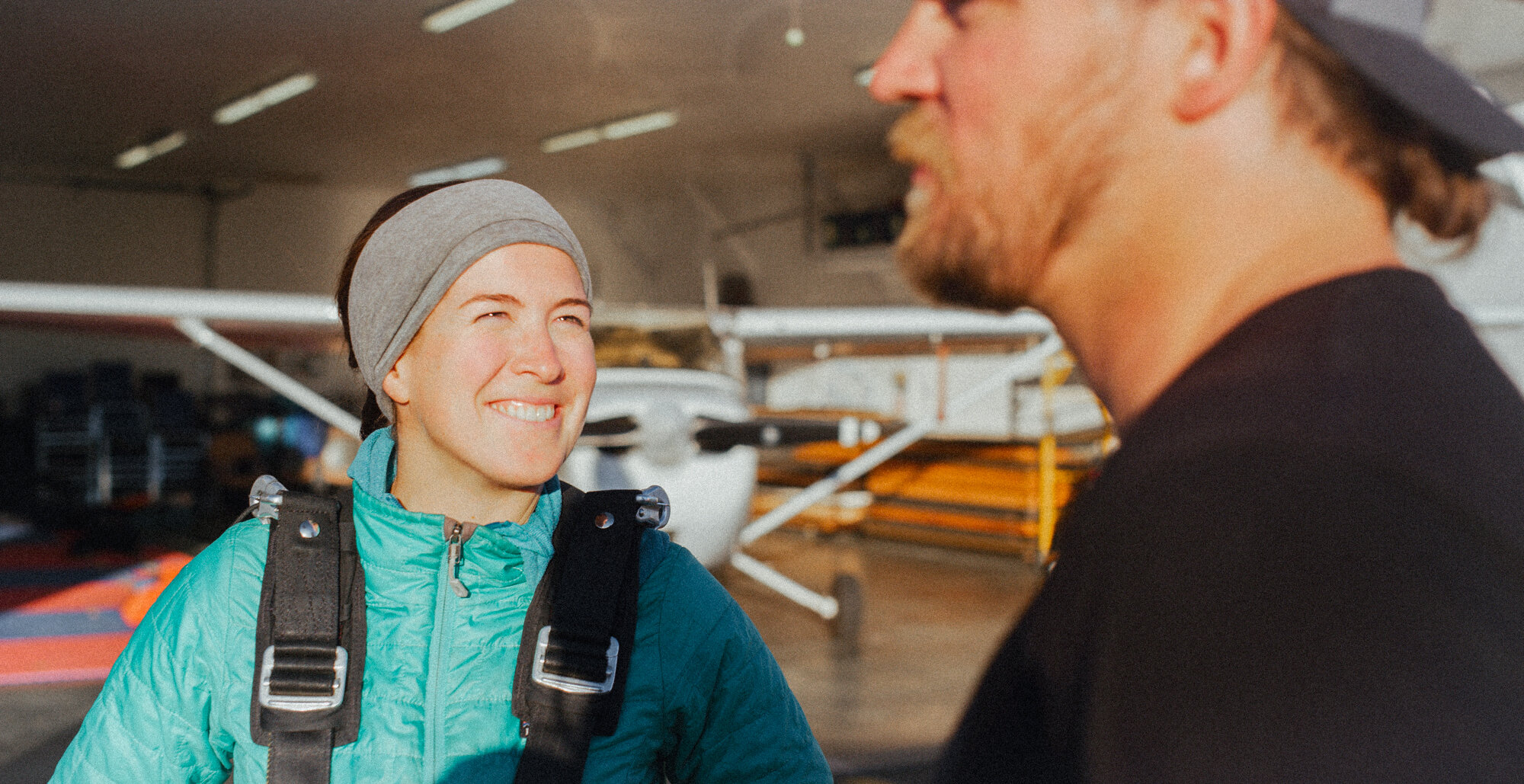
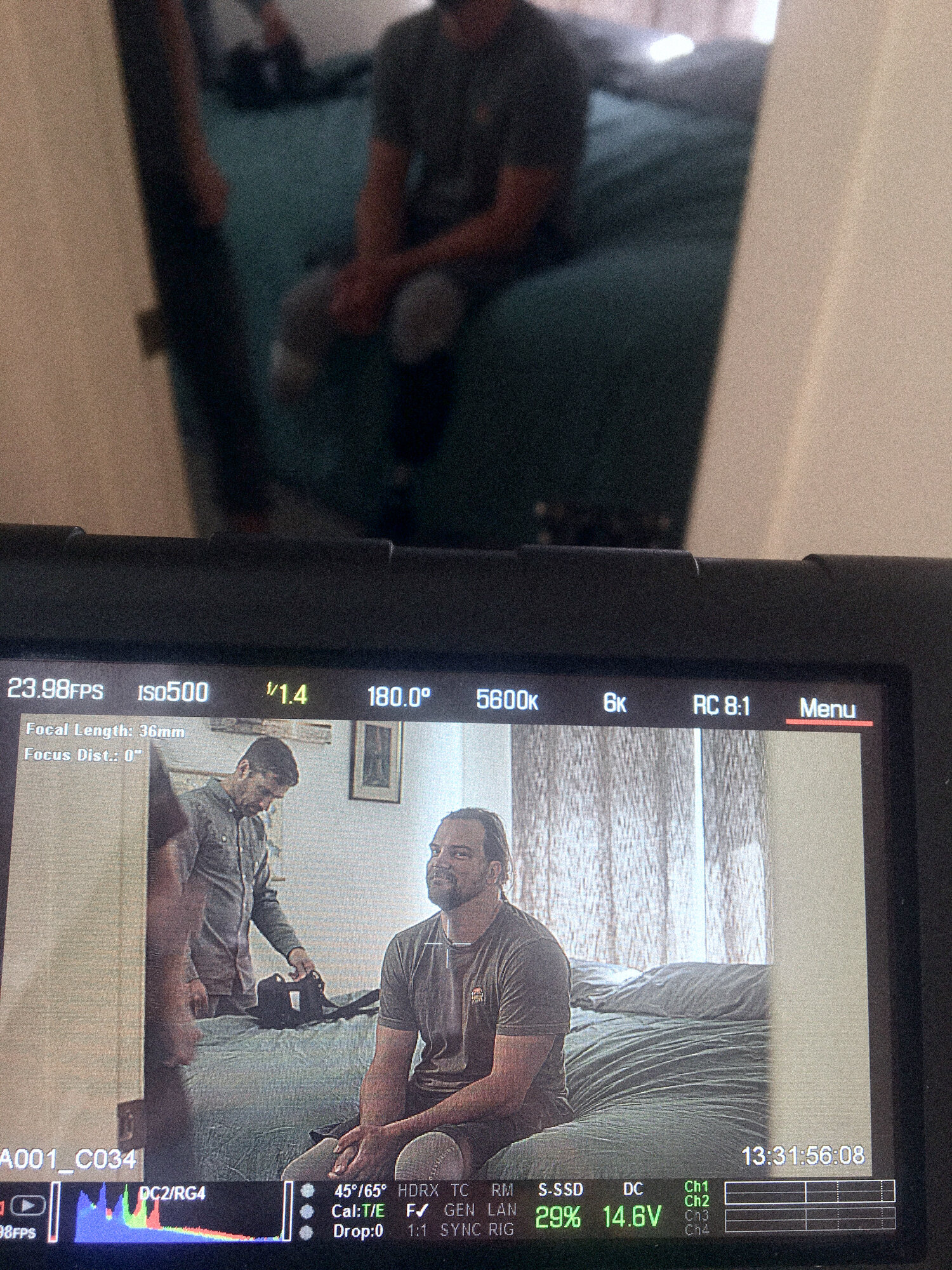

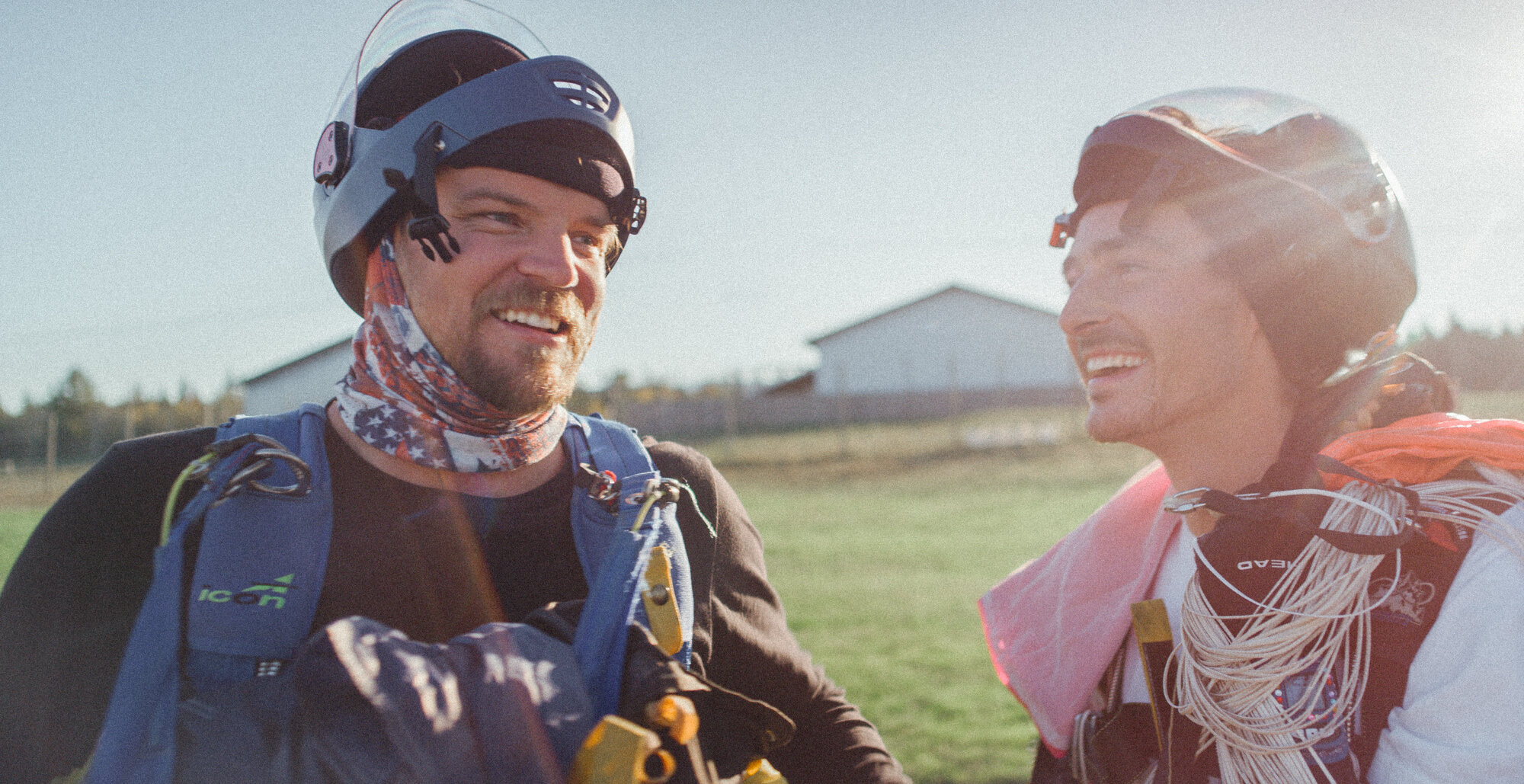

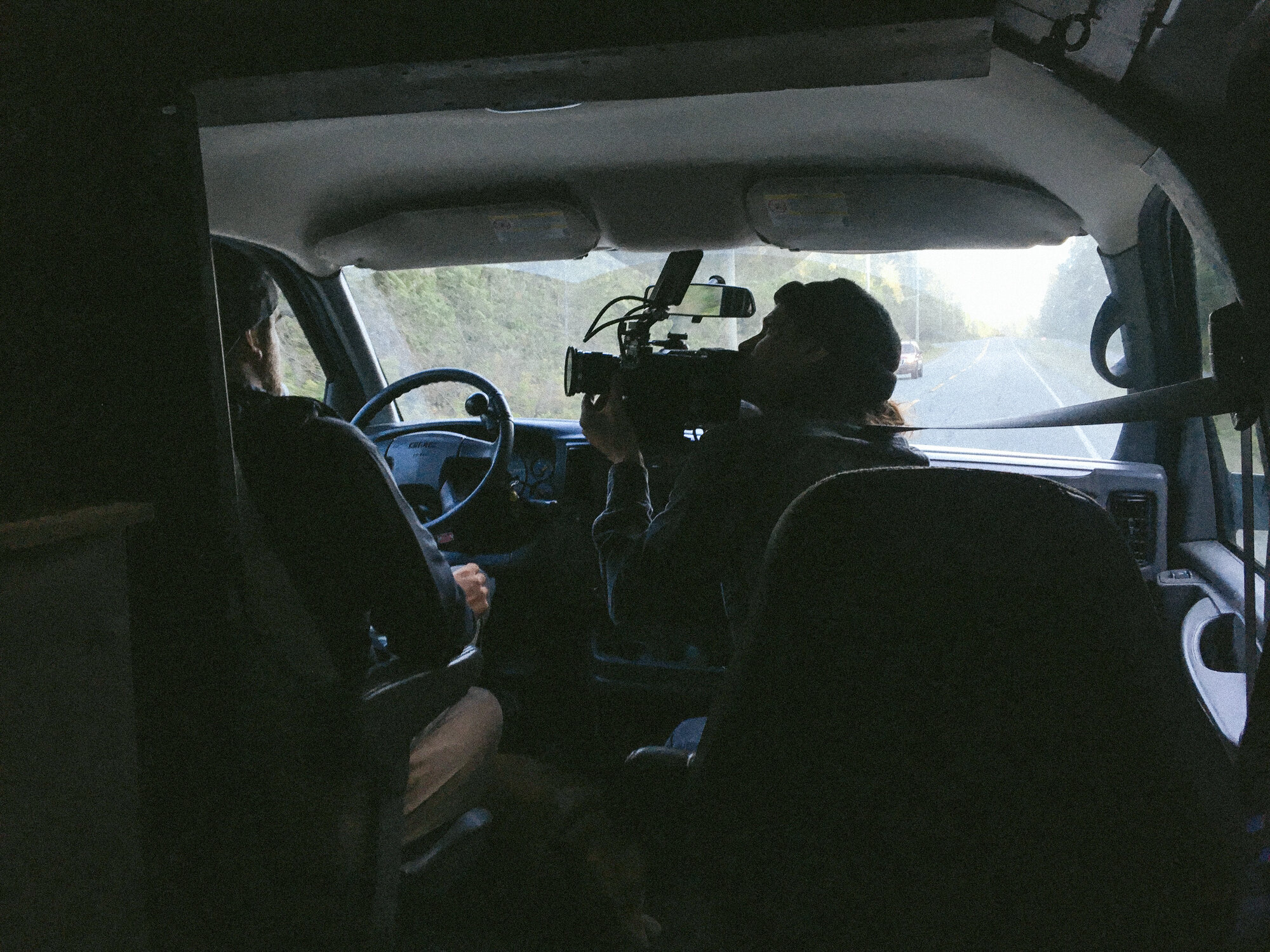


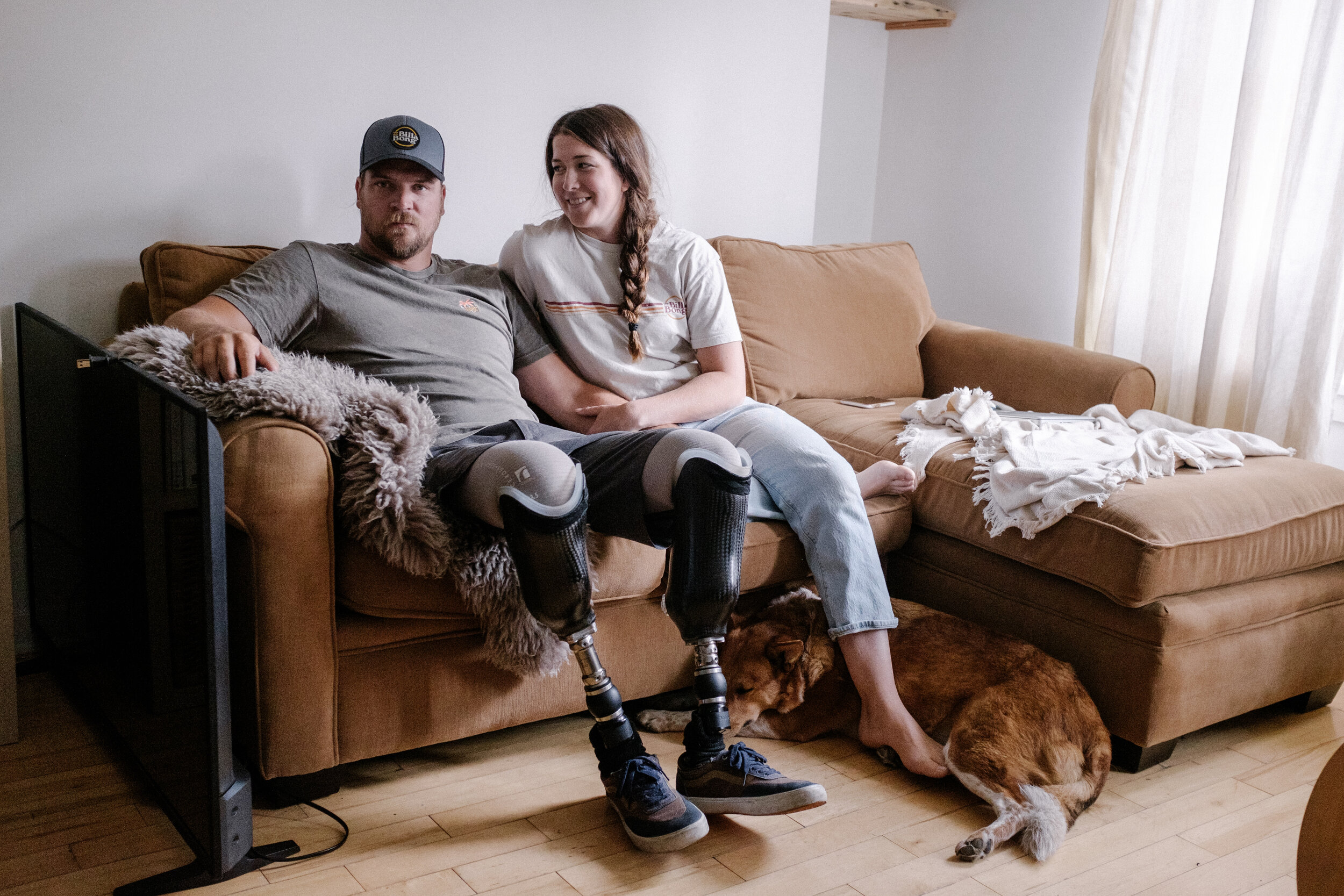
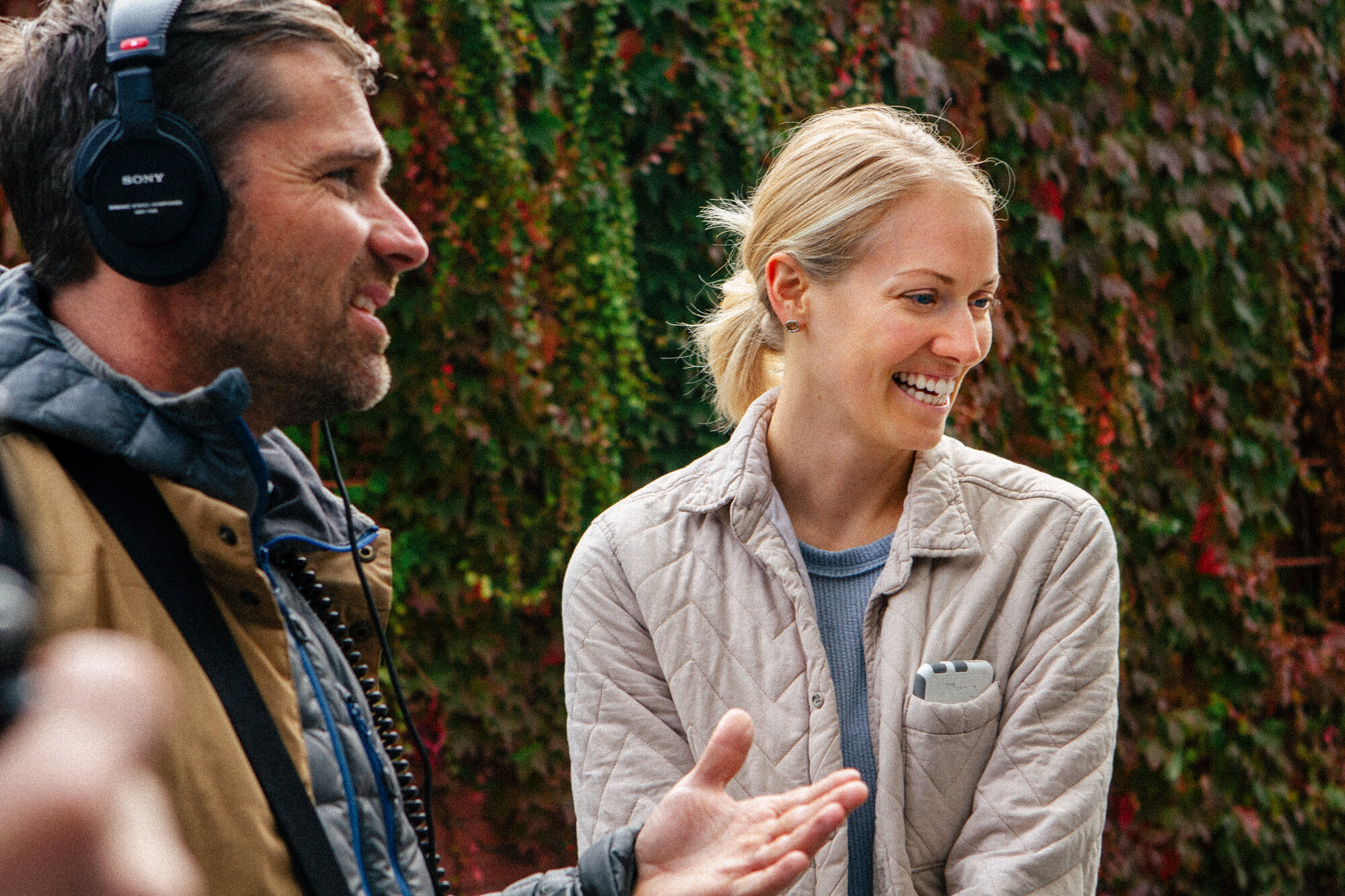

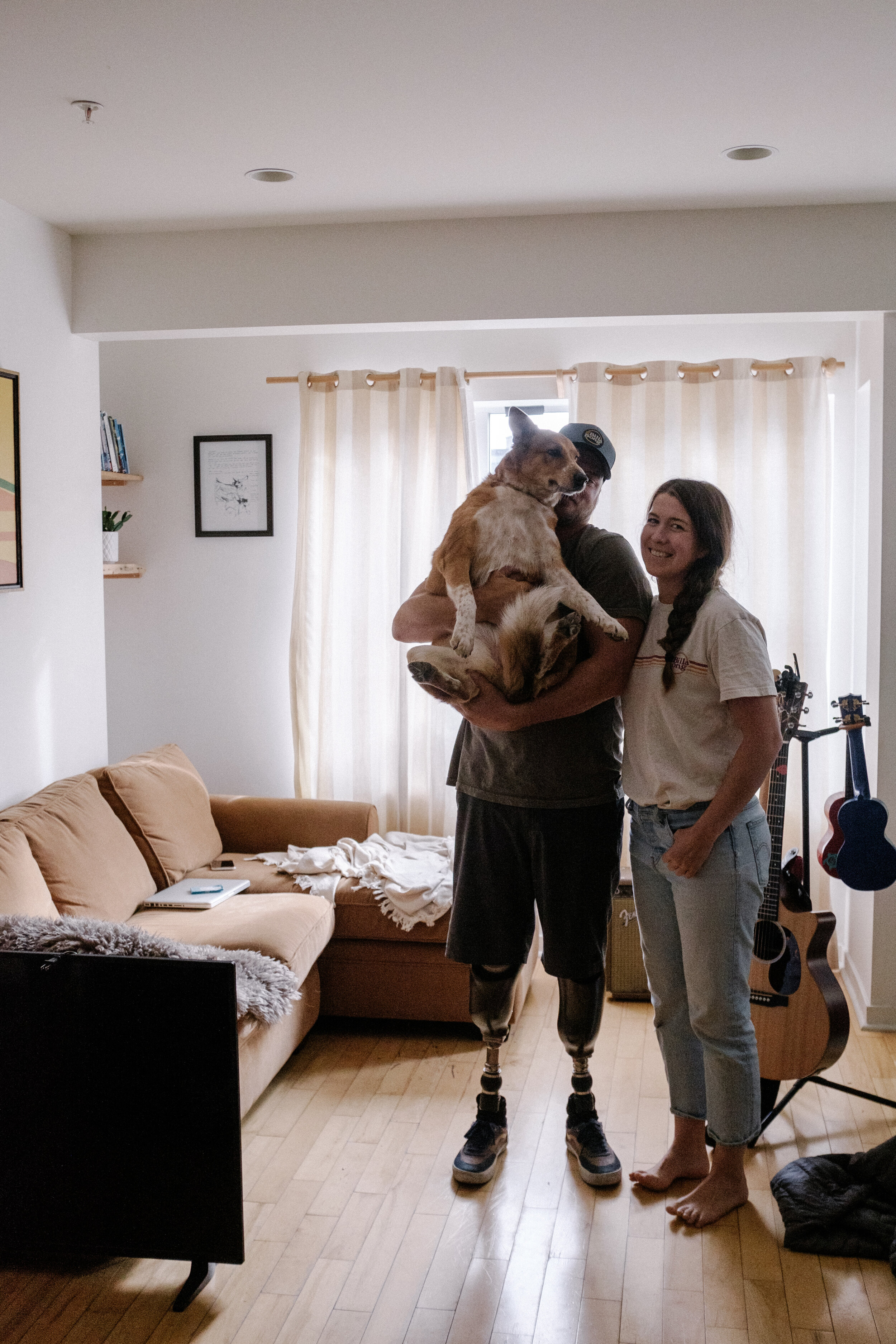
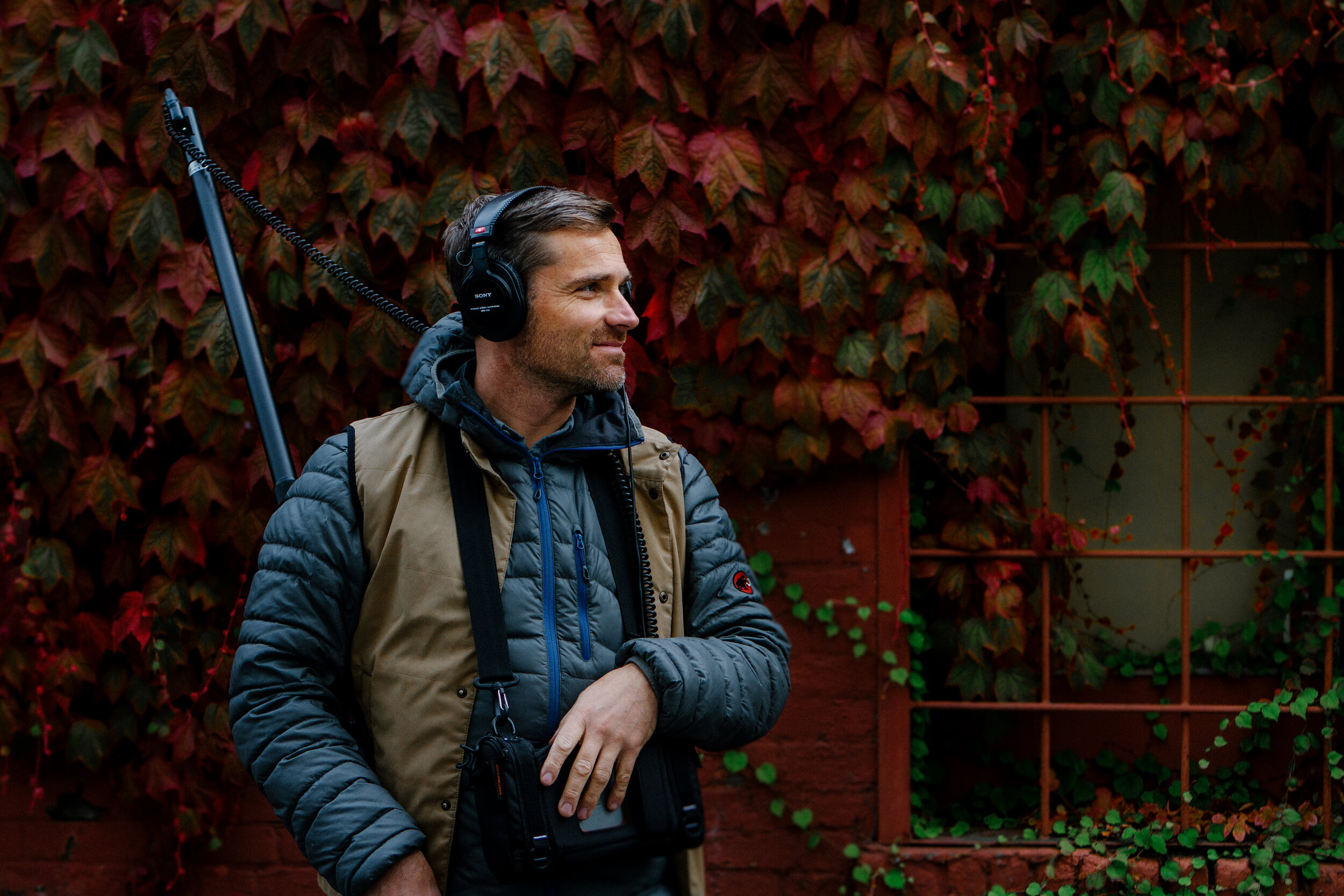


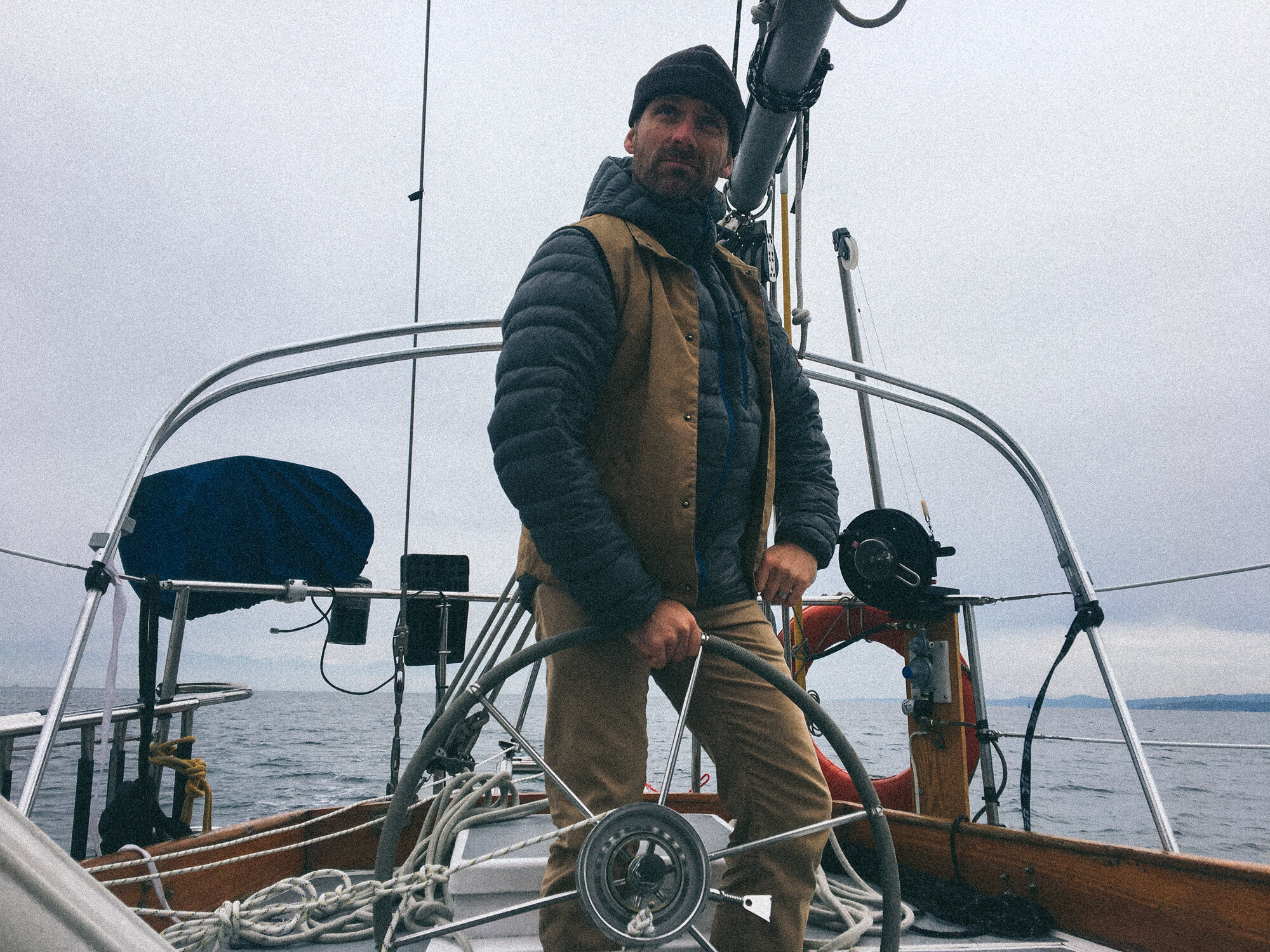

q&A with director Lara Shea
What’s this film about?
It’s about someone overcoming trauma and recovering mentally and physically. But a little secret tidbit that you might not realize is that there’s also a love story hidden in there.
Why did you call the film sixty Seconds?
We thought it would be interesting to call it Sixty Seconds because Tyler can’t remember the sixty seconds before his collision with the ground. No one saw or understands what contributed to the event. Can you imagine your life changing like that, and never knowing what was it exactly that went wrong or what caused the accident?
How did you treat gender roles?
I wanted to show a man talking about his emotions. I also felt it was important to focus on males being vulnerable, and that’s what I tried to do. Also showing Kayleen as the pillar of Tyler’s life. Her strength.
How did the journey begin?
I was friends with Ty before the accident. When I talked to Tyler, although obviously our traumas are very different, I felt working with him on this film would help me reconcile with my own life. I saw potential in this story to speak to people because I felt what he was experiencing was quite profound. He is also very true, and I felt his bravery and honesty would allow me to portray a true experience.
Are there any obstacles you faced as a woman making this film?
Being a parent. The job is very consuming and demanding, and required balance. This is probably the same in every job, but it’s the case in the film industry, especially maybe more so. I also had teach myself all the skills I needed, because I chose not to leave my family to go back to film school.
What’s the most meaningful part of this film for you?
There were so many things I didn’t know how to do, technically and emotionally in the film, that I learned along the way, and that gave me a lot of confidence, being able to complete the project. Two of the most meaningful challenges were dealing with depression and disability. I had Tyler’s trust to go as emotionally deep as we did. It goes back to my own trauma to witness someone being so vulnerable. When he was describing his depression I felt I understood my own a bit more and recognize its the leading cause of disability worldwide, and affects so many of us. Depression is isolating. It's so difficult to let people in. It feels so individualized, it’s hard to connect with others. I feel like it relates to what’s happening in the pandemic, the pain and suffering seems so isolating still. I felt by dealing with Tyler’s depression and disability, I was dealing with my own fears and depression, and hopefully, creating something helpful and relatable for others.

Talk a bit about the team you work with.
I was really lucky, I’ve worked with everyone before and we’ve worked really well together. My partner and I have ridiculous alter egos on set. Rickels and Lolo. And he’s the sound guy and really secretly is in love with the director, Lolo. And when they bicker over things on set we never take it home. That’s Rickels and Lola’s problem.
What was the hardest day on the set?
Probably the sky diving segment. Organizing sky dives and not stressing about people sky diving. I have never been skydiving. I was really out of my element. The entire crew minus one person were skydiving that day. I had to organize, to make sure we had time for everything. We had two planes. And when we lost communication with one of the planes in the air, I was worried about losing the shot, our budget was tight and we couldn’t afford to re-shoot. It was getting dark. We were waiting for them to drop from 10,000ft, and finally they came down, we found them and got the shot but it was stressful, though in the end it worked out.
How does this film treat the subject of trauma?
The film doesn’t directly address the trauma itself, but rather the effect of trauma.
I knew that given Tyler’s state when we began filming, we had to be delicate and patient in creating a space where there was trust so he could feel comfortable enough to open up about what he was going through. We filmed over a year and a half. Dr. John Coleman was Tyler’s psychologist, and it was quite special that we gained the trust of both of these people and were more able to show the balancing act between the dark and the light, to show the trauma and the person helping Tyler through it.
I wanted a film that could speak to young adults as well as adults, and hopefully showcase mental illness and trauma in a way that they could connect with.
How does this film treat the subject of love?
That part was always a surprise to me, to find out Kayleen was such a large part of Tyler’s life. They knew each other before the accident, and had a first date in the hospital. She was a large part of Tyler’s recovery. She is a strong person. She sacrificed a lot to support Tyler. It was romantic hearing the story. I wanted to show the love and care they had between them.
Commonly in film, people with a disability are stereotyped. How did you chose to portray Tyler?
I didn’t want to portray him as a type, I wanted to portray him as a person. The ultimate aim of the film was to show him as a person struggling with adversity. I intentionally delayed showing the viewer what his injuries were, so you could connect with him emotionally.
What are your plans moving forward, and do you have ideas for a potential next film?
Yes I do. I’m really excited about it. I don’t want to say very much, but it’s another short documentary in a similar vein.
CREDITS
Director / Producer LARA SHEA
Executive Producer Ken Bibby
Director of Photography JASON MANNINGS
Aerial Director of Photography ZACH MOXLEY
Underwater Cinematographer NICOLAS TEICHROB
Camera Operator CHRIS BARIBEAU
Camera Operator LARA SHEA
Sound Mixer “RICKLES” KEN BIBBY
Starring TYLER TURNER
KAYLEEN VANDERREE
CODY THOMPSON
JOHN COLEMAN
Dog PIERRE
Tandem Skydive Instructor ERIKA DUFORT
Pilots DOAN ALLEN
ERWIN PETERS
“Father” written and performed by LEE GREEN
Courtesy of FROST CREEK RECORDS
”Aligator” written and performed by “FEBUEDER”
Courtesy of TAPE CLUB RECORDS & SMT ARTISTS MGT
Thank You
SKYDIVE VANCOUVER ISLAND
ALLISON & GORD
ERIKA DUFORT
KARLA ROBINSON
BIG BEACH GUEST HOUSE
K3 CATSKI
ALAN BIBBY

Technical
- Shot on RED Digital Cinema, Black Magic & Sony A7R
- Aspect ratio 1.85:1, 4:3
- 23.97 FPS
- 40 Second Length Trailer
- 19 Minute Length Film
- Behind the Scenes Images
- Key Bios
- Director Statement
- Q&A with Director Lara Shea
- 15+ Screen Grabs for Press Release

Contact us
Lara Shea
Director / Producer info@larashea.comKen Bibby
Producer / Executive Producer bibby@chrysalisalpine.comMelissa Shea
Public Relations Manager
mshea_@hotmail.com













